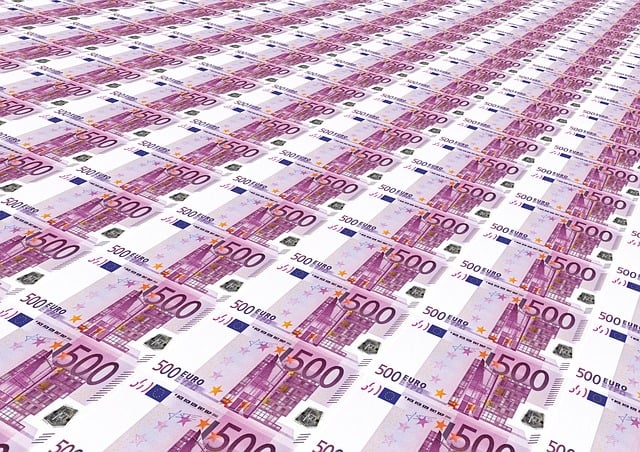How to Save Money While Living in France

Living in France can be a dream come true, but it’s important to manage your finances wisely to make the most of your experience without breaking the bank. From housing and transportation to groceries and leisure activities, there are many ways to save money while enjoying all that France has to offer. Here’s a comprehensive guide to help you live comfortably and frugally in France.
1. Housing: Find Affordable Accommodation
Housing is often the largest expense for expats and locals alike. Here’s how to reduce costs:
a. Choose the Right Location
- Live Outside Major Cities: Rent prices in Paris, Lyon, and Marseille are significantly higher than in smaller towns or rural areas. Consider living in nearby suburbs or less touristy neighborhoods.
- University Cities: Cities like Toulouse, Grenoble, or Nantes often have lower living costs compared to Paris.
b. Share Accommodation
- Roommates: Sharing an apartment with roommates can drastically cut down on rent and utility bills.
- Colocation Websites: Use platforms like Appartager , Leboncoin , or Pap.fr to find shared housing options.
c. Negotiate Rent
- Don’t hesitate to negotiate rent, especially if you’re signing a long-term lease. Landlords may offer discounts for extended stays or upfront payments.
d. Consider Furnished Rentals
- If you don’t need to buy furniture, opt for furnished rentals, which can save you money on initial setup costs.
2. Transportation: Use Public Transit and Alternative Options
Transportation costs can add up quickly, but there are ways to minimize them:
a. Use Public Transport
- Monthly Passes: Invest in a monthly transport pass (e.g., Navigo in Paris) instead of paying for individual tickets.
- Bike-Sharing Programs: Many cities, including Paris (Vélib’) and Lyon (Vélo’v), offer affordable bike-sharing services.
b. Walk or Cycle
- France is known for its pedestrian-friendly streets and scenic cycling routes. Walking or biking not only saves money but also helps you explore your surroundings.
c. Carpooling
- Platforms like BlaBlaCar allow you to share rides with others for intercity travel at a fraction of the cost of trains or buses.
d. Avoid Owning a Car
- Owning a car in France can be expensive due to insurance, parking fees, and fuel costs. Rely on public transport or car rental services when necessary.
3. Groceries: Shop Smart and Cook at Home
Food expenses can vary depending on your habits, but these tips will help you save:
a. Shop at Local Markets
- Farmers’ markets (marchés ) offer fresh, seasonal produce at lower prices than supermarkets. Visit markets near closing time for discounted goods.
b. Buy in Bulk
- Stores like Carrefour , Leclerc , or Auchan often have bulk sections where you can purchase staples like rice, pasta, and beans at reduced rates.
c. Avoid Touristy Areas
- Grocery stores in tourist-heavy neighborhoods tend to charge higher prices. Shop in residential areas for better deals.
d. Cook at Home
- Eating out frequently can strain your budget. French cuisine is easy to replicate at home, and cooking allows you to enjoy authentic meals without restaurant markups.
e. Take Advantage of Sales
- Pay attention to weekly promotions (promos ) and loyalty programs at supermarkets. Many stores offer significant discounts on select items.
4. Utilities: Reduce Energy Costs
Utility bills can be a major expense, especially during winter months. Here’s how to save:
a. Conserve Energy
- Turn off lights, unplug devices, and use energy-efficient appliances to lower electricity consumption.
- In winter, wear layers indoors and use space heaters sparingly to reduce heating costs.
b. Compare Providers
- For electricity, gas, and internet, compare providers using websites like Selectra or Meilleurebox to find the best deals.
c. Shared Bills
- If you live with roommates, split utility costs evenly to reduce individual expenses.
5. Leisure and Entertainment: Enjoy Free or Low-Cost Activities
France offers countless free or inexpensive ways to enjoy your free time:
a. Explore Nature
- France is home to stunning parks, forests, and beaches. Spend weekends hiking, picnicking, or swimming instead of spending money on paid attractions.
b. Visit Museums for Free
- Many museums offer free entry on the first Sunday of the month or during European Heritage Days (Journées du Patrimoine ).
c. Attend Local Events
- Look for community events, festivals, and concerts, which are often free or low-cost. Check local town halls (mairies ) for announcements.
d. Borrow Books and Movies
- Libraries (bibliothèques ) provide free access to books, DVDs, and magazines. Some even host workshops and cultural events.
e. Happy Hours and Discounts
- Take advantage of happy hours at bars and cafés, as well as student or senior discounts at restaurants and attractions.
6. Healthcare: Maximize Social Security Benefits
France’s healthcare system is excellent, but understanding how to use it effectively can save you money:
a. Register for Social Security
- As a resident, you’re eligible for Sécurité Sociale , which covers 70–100% of medical costs. Ensure you’re registered to avoid unnecessary expenses.
b. Get Complementary Insurance
- Supplemental health insurance (mutuelle ) fills gaps in coverage and can save you money on prescriptions, dental care, and specialist visits.
c. Use Generic Medications
- Ask for generic versions of prescription drugs, which are cheaper than branded alternatives.
7. Education and Childcare: Leverage Subsidies
If you have children or are pursuing education, take advantage of subsidies and grants:
a. School Fees
- Public schools in France are free for residents, including universities (with minimal registration fees). Private schools may offer scholarships.
b. Childcare Assistance
- The government provides financial aid for childcare through programs like CAF (Caisse d’Allocations Familiales) . Apply for subsidies to cover daycare or nanny costs.
8. Banking: Avoid Unnecessary Fees
Banking fees can eat into your savings if you’re not careful:
a. Choose the Right Bank
- Online banks like N26 , Revolut , or Qonto often have lower fees than traditional banks.
- Some banks waive account maintenance fees for students or low-income individuals.
b. Monitor Currency Exchange
- If you transfer money internationally, use services like Wise or Revolut to avoid high exchange rates and hidden fees.
9. Taxes: Optimize Your Financial Situation
Understanding French taxes can help you save money:
a. File for Tax Credits
- Claim deductions for expenses like rent, childcare, and commuting. Use software like Impots.gouv.fr to simplify tax filing.
b. Micro-Entrepreneur Status
- If you’re self-employed, consider registering as a micro-entrepreneur , which offers simplified accounting and reduced social charges.
10. Miscellaneous Tips
- Avoid Tourist Traps: Eat where locals eat, shop where locals shop, and avoid overpriced souvenirs.
- Use Student Discounts: If you’re a student, carry your ISIC card to access discounts on transportation, museums, and more.
- DIY Repairs: Learn basic home repair skills to avoid hiring professionals for minor fixes.
- Secondhand Shopping: Thrift stores (Emmaüs ) and online marketplaces like Leboncoin are great for finding affordable furniture, clothing, and electronics.



